Tourist in Croatia? How to Help Street Cats in Split When Traveling
July 28, 2022 - It's impossible to miss street cats when you're traveling around Croatia, but what should you do if you find one in need? A look at how to help street cats in Split.
Street cats have become a symbol of Croatian coastal cities. Often photographed in a 'fjaka' state of mind, cats rule many Split neighborhoods - but that's not necessarily a good thing.
Multiplied in the summer months after kitten season in the spring, it's become increasingly difficult to care for the street cats in Split. And without an animal shelter in the city, much of the work is left to volunteer associations that labor day and night establishing trap-neuter-release programs while their homes act as shelters for cats needing medical attention. Not to mention the thousands waiting to be adopted or fostered.
So, what can you do if you're in Split and notice a cat (or several) in need? Some tips from Split animal associations:
- Perhaps the easiest task as a tourist looking to help street cats in Split is to feed them and leave them water. Unfortunately, summer in Croatia is no walk in the park for humans, let alone street cats with no cool place to call home. However, it's simple enough to find a container for water and purchase wet or dry food at the local supermarket to leave in the cat-populated areas.
- If you find a cat or kitten that's obviously a stray but does not look sick, lost, or confused, it is best to leave it on the street rather than take it to your accommodation if you have no intent on giving it a permanent home. It is not easy to find fosters in Croatia, and while you might think you're doing the right thing by giving it a safe place for a few days or a week, it will likely end up on the street again after being pampered and acclimated to regular meals. This means it can become disoriented with less chance of survival when back on the street.
- If you find a sick and injured cat or kitten, it's best to take it to the nearest vet and see if they have the option of keeping it in a cage until it gets better. Most vets have this option for a fee. You can find the phone numbers for vets in Split below.
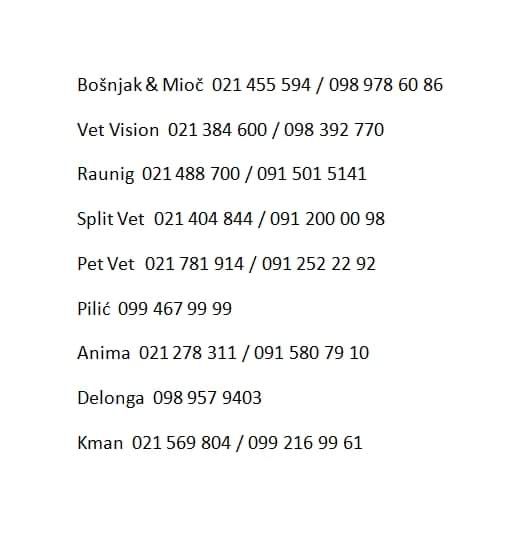
And perhaps the best thing you can do? If you're financially able to donate, support a local animal association. They rely on the donations of others to survive, with little to no help from the city, meaning trap-neuter-release programs, medications, fosters, food, and transport are taken care of thanks to your donations. They also have many cats and kittens available that desperately need a foster family if you someone you know is a candidate. Animal associations may also be able to help you catch a sick or injured street cat that needs to be taken to the vet, though the summer months are hectic with multiple calls a day, so keep this in mind if you don't hear back right away. Remember, they are volunteers, after all.
You can find a list of animal associations in the Dalmatia area in our Animal Associations and Shelters in Croatia series HERE.
For more, check out our lifestyle section.
Azil Dumovec: Where Zagreb Bus Drivers Take Their Injured Owls
December 8, 2021 – When there's an animal emergency in Zagreb, Azil Dumovec are the first to respond. TCN visits the city animal shelter to find out what they do.
Zagreb bus driver Dario Buzjak was making his final run from Velika Gorica back to the city terminal when he noticed something unusual lying in the road. Saturday night had already turned to Sunday morning on this late November evening. Yet, despite the lateness of the hour, the cold and bad weather, Dario postponed clocking off to stop and take a closer look.
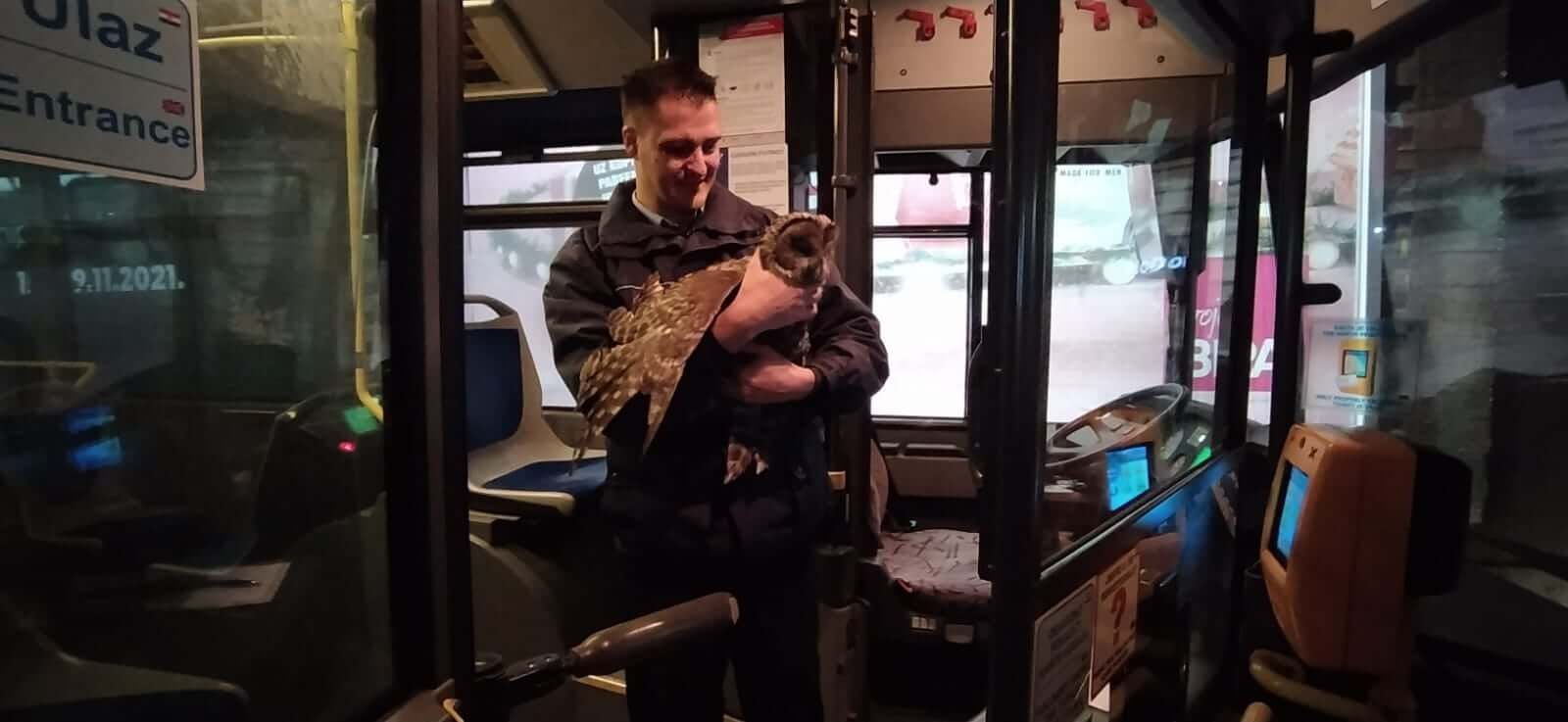
As he got nearer, Dario could tell the owl was injured. So, to make sure she wouldn't be run over by another driver, he carefully picked her up. After placing her in the footwell of his bus, he started back on his journey to the station.
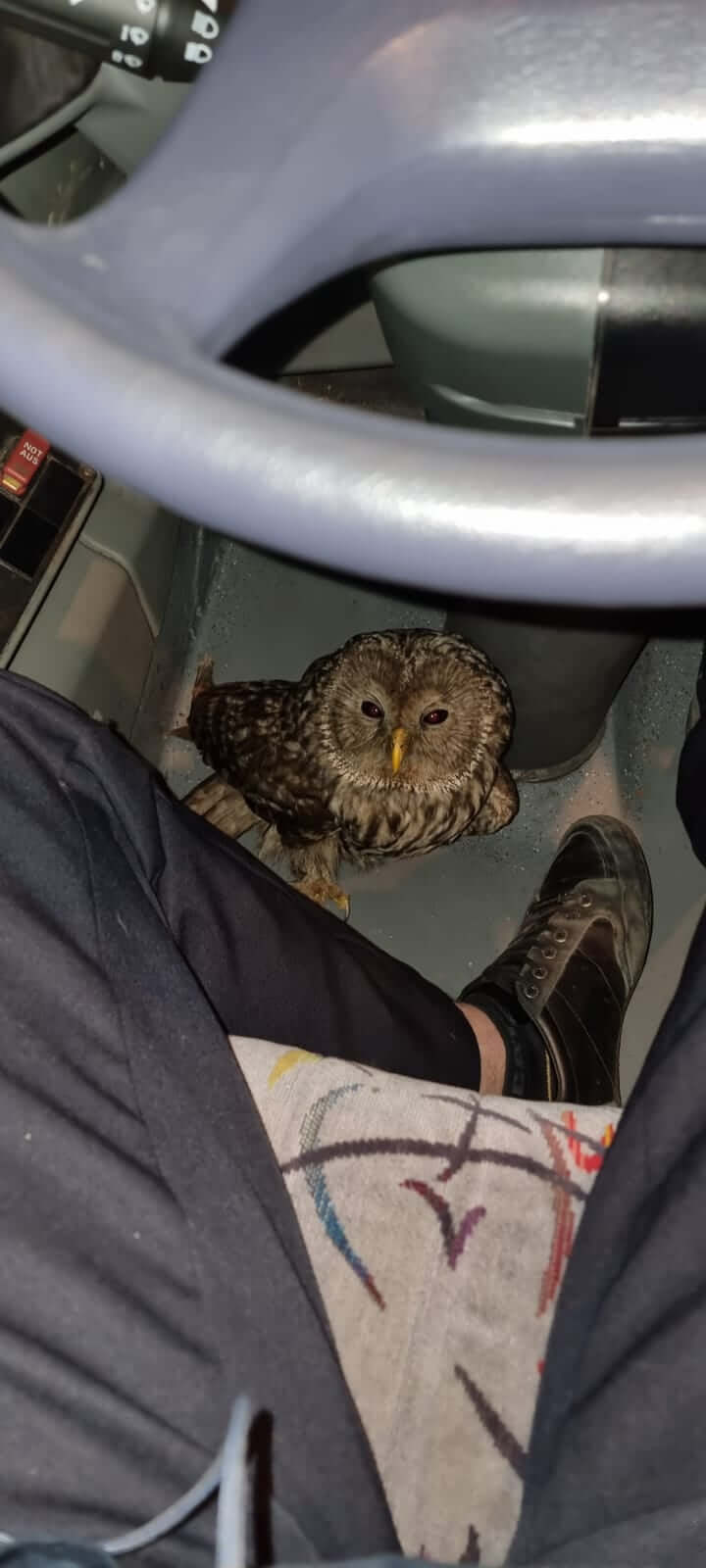
But, what to do next? Just who does a Zagreb bus driver contact when he finds an injured owl in the road?
Luckily, Dario Buzjak knew exactly what to do. He called Azil Dumovec.
“Dario knew about us because he adopted one of our dogs a few years ago,” says Tatjana Zajec, manager of Azil Dumovec. Based on the eastern outskirts of Zagreb, it is Croatia's first and largest municipality-owned animal shelter. “After he made sure it was safe inside the bus, he called us immediately. We took the call here and sent out one of our animal welfare responders.”
If there's an emergency involving an animal in Zagreb, Azil Dumovec is the first point of call. In fact, if someone phones 112 (the general emergency line) about an animal, the operator will make an assessment and, if warranted, transfer the caller to Azil Dumovec.
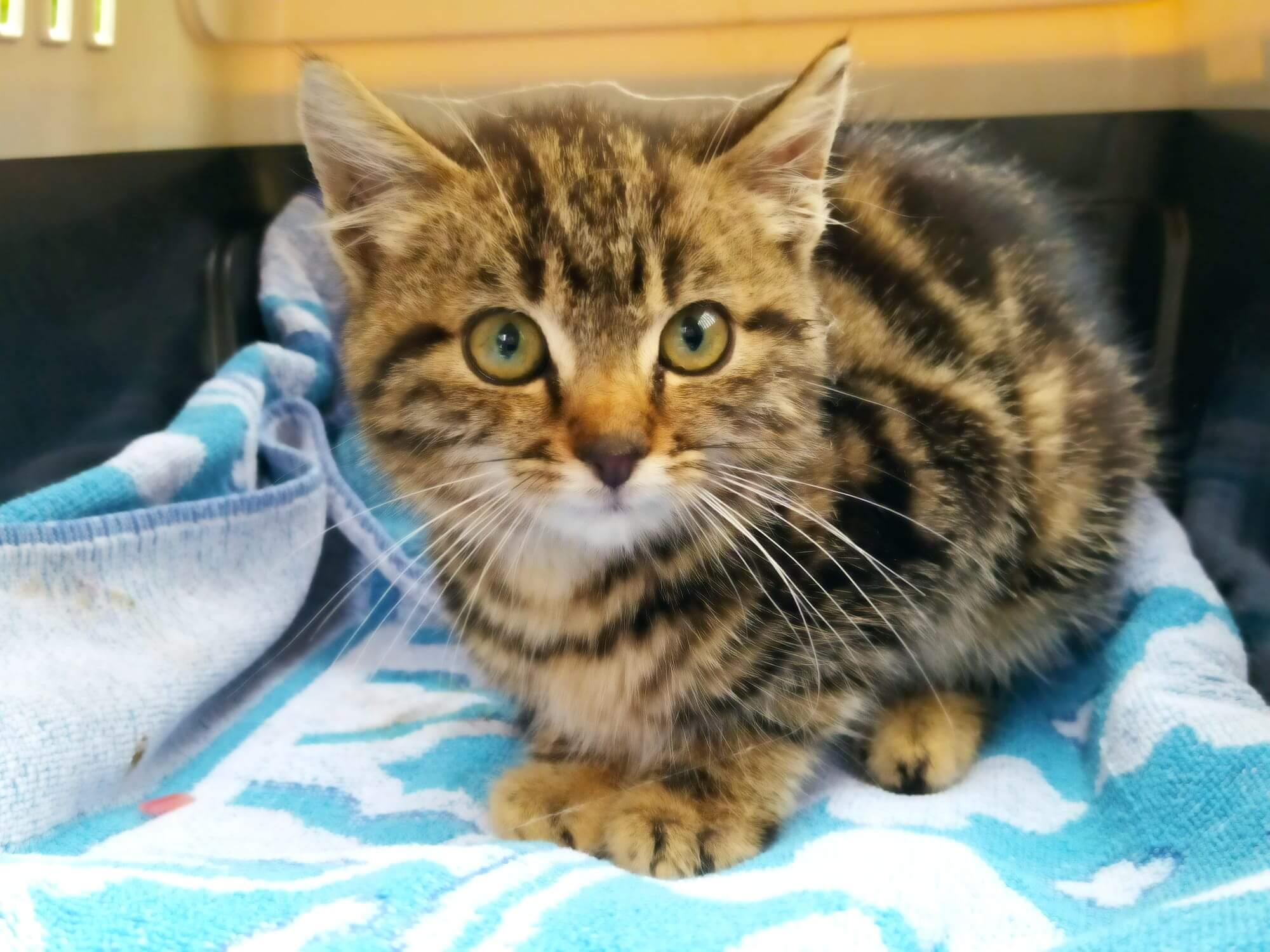
“On average, we take around 60 calls per day,” says Tatjana, as she shows Total Croatia News around their operations in Dumovec. Cats wander freely around the shelter's offices. Outside, a long line of excited dogs - temporary visitors waiting to be adopted. “Around 10 of those calls will be about wildlife. The others will be about domesticated animals and could come from members of the public, neighbours, the police or social services.”
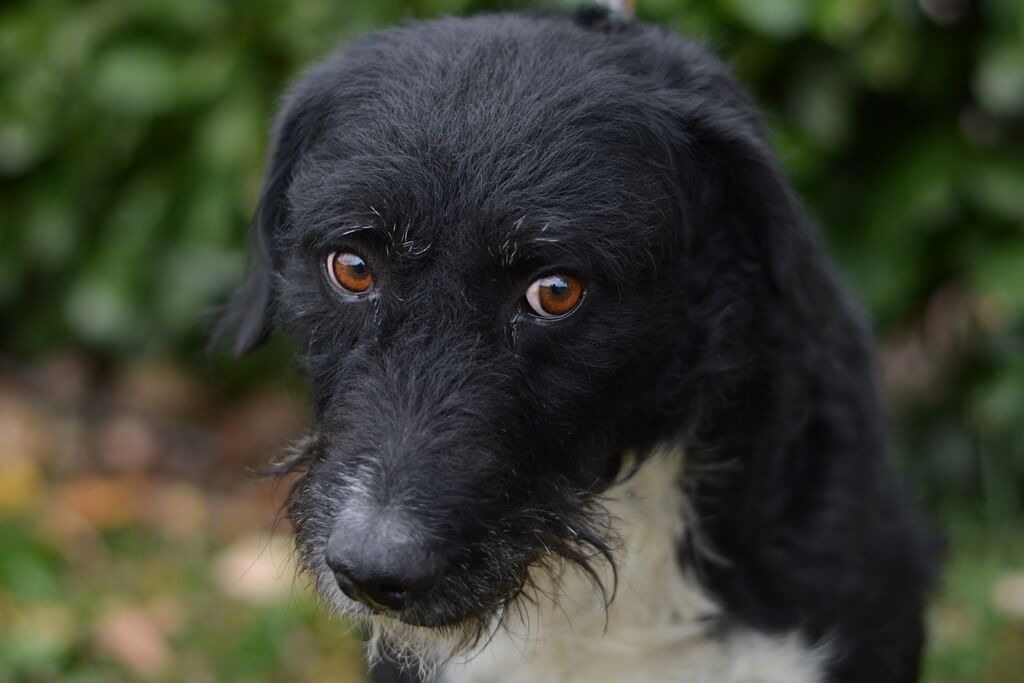
“They're not always calling about dogs and cats. We are asked to come to collect pigs, ducks, geese and chickens, even though you're not really supposed to be keeping such animals when you live within city limits. Also sheep. In fact, we had one sheep just last week. She was tied to a tree in a city park. The police called us. But, by the time we got there a guy had arrived from the local pub and claimed it as his sheep. He'd tied it up in the park while he went for a drink.”

When Azil Dumovec are contacted about an animal emergency, their phone operators must decide what to do. If the call is about a regular domesticated house pet, like a dog or a cat, the animal is brought to the centre in Dumovec, checked by their vets and given a temporary home until a new one is found. If the call is about a more exotic or wild animal, Azil Dumovec will despatch a responder to collect it and take it to the Wildlife Rehabilitation section of Zagreb Zoo. The other option is to transfer the animal to AWAP (Association for Wild Animals Protection), a charity rescue centre for confiscated and injured protected animals.
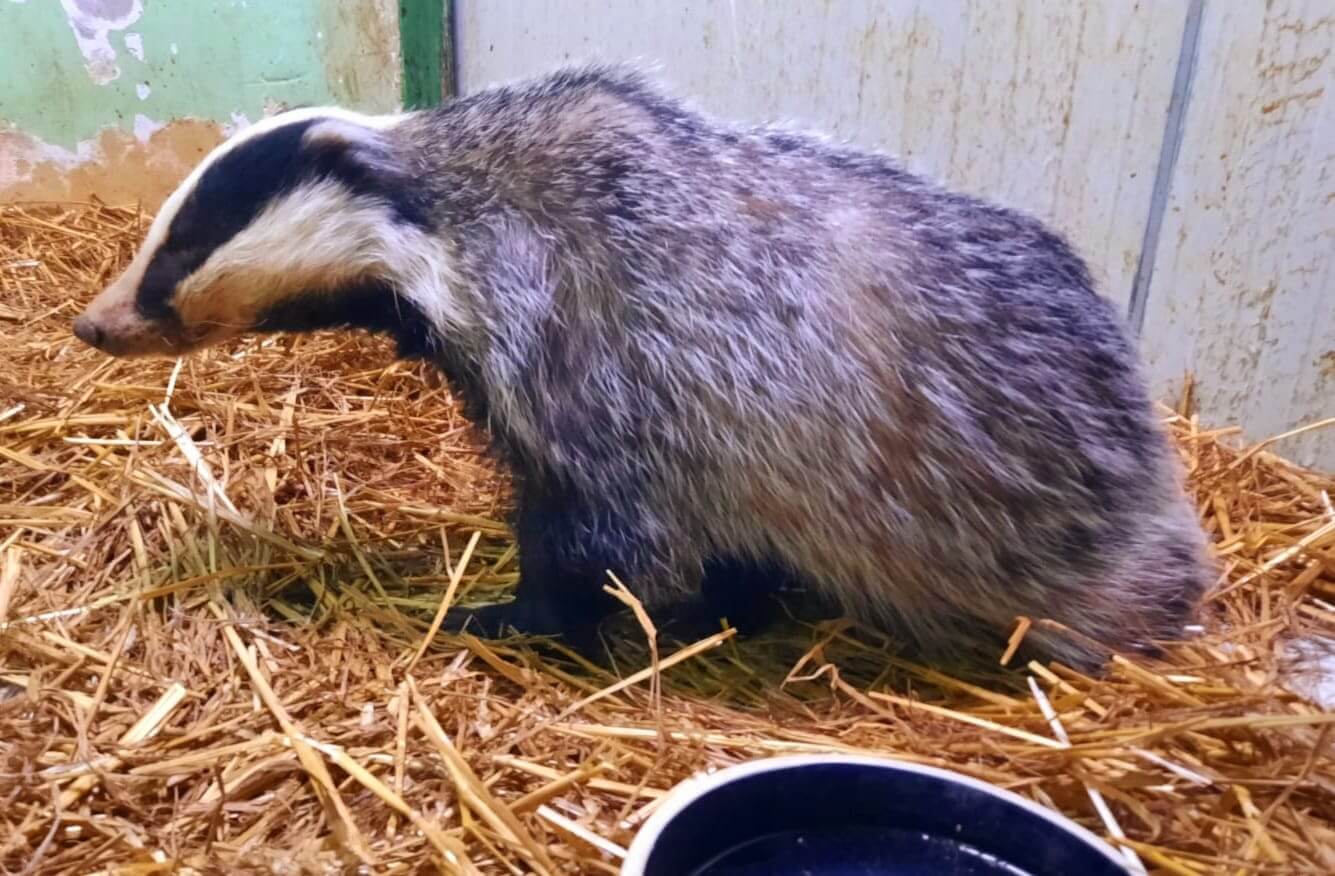
“We deal with bats, badgers, beavers, deer, snakes, you name it,” says Tatjana. “Occasionally we even see some venomous snakes like poskok (Horned viper - Vipera ammodytes). Usually, they live in the area of Medvednica. But, several times we've been called to remove them from Zagreb houses. They crawl into basements and sometimes cars to escape from bad weather.”
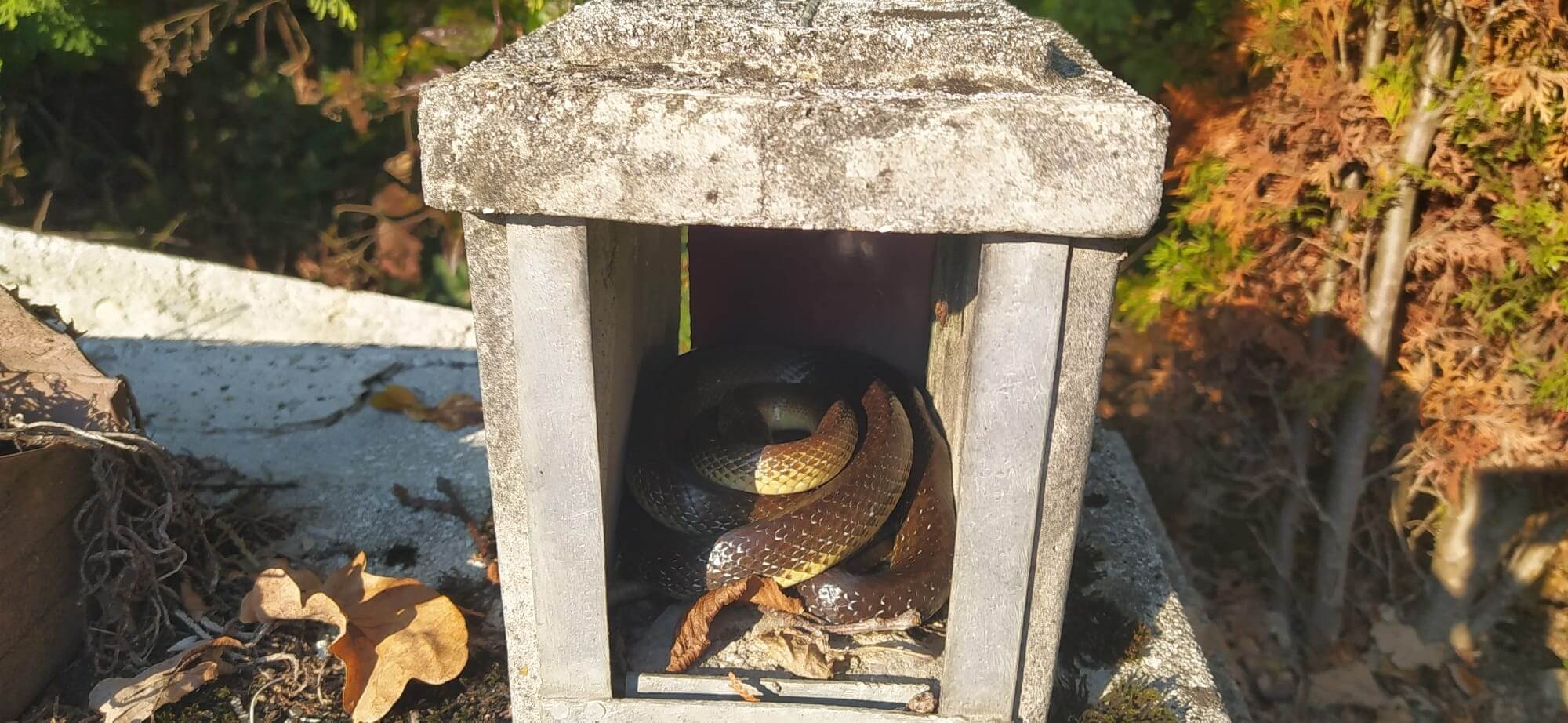
“A lot of the calls we get are because wild animals share parts of the city with people,” she says. “And, many of the people who live here just don't understand it. They don't know what to do. For instance, they might have a bird or a bat that makes a home for itself on their balcony. Or they might be startled by the sight of a family of foxes living on the embankment. We know one deer who likes to come to an area near Cibona Tower, very close to the city centre. He comes every year. I think it's maybe a student accommodation place. We always have so many calls about him.”
Sandrino, Tatjana's co-worker shakes his head. A veteran worker at the shelter, Sandrino used to work outside with the animals. Now, he answers the phone in the call centre.
“This is cleaner,” he tells TCN of his new position. “But, honestly, it's better to work outside with the dogs.”
Why?
“Different kinds of people call you,” he says. His emphasis is on the word 'different'. He's being polite.
“Well, it's a big town,” he adds, with a shrug and a smile. “One guy found an injured pigeon. We had to send it to AWAP. He asked “Can I come to visit him?”, like it is some kind of hospital with visiting times.” Sandrino laughs.
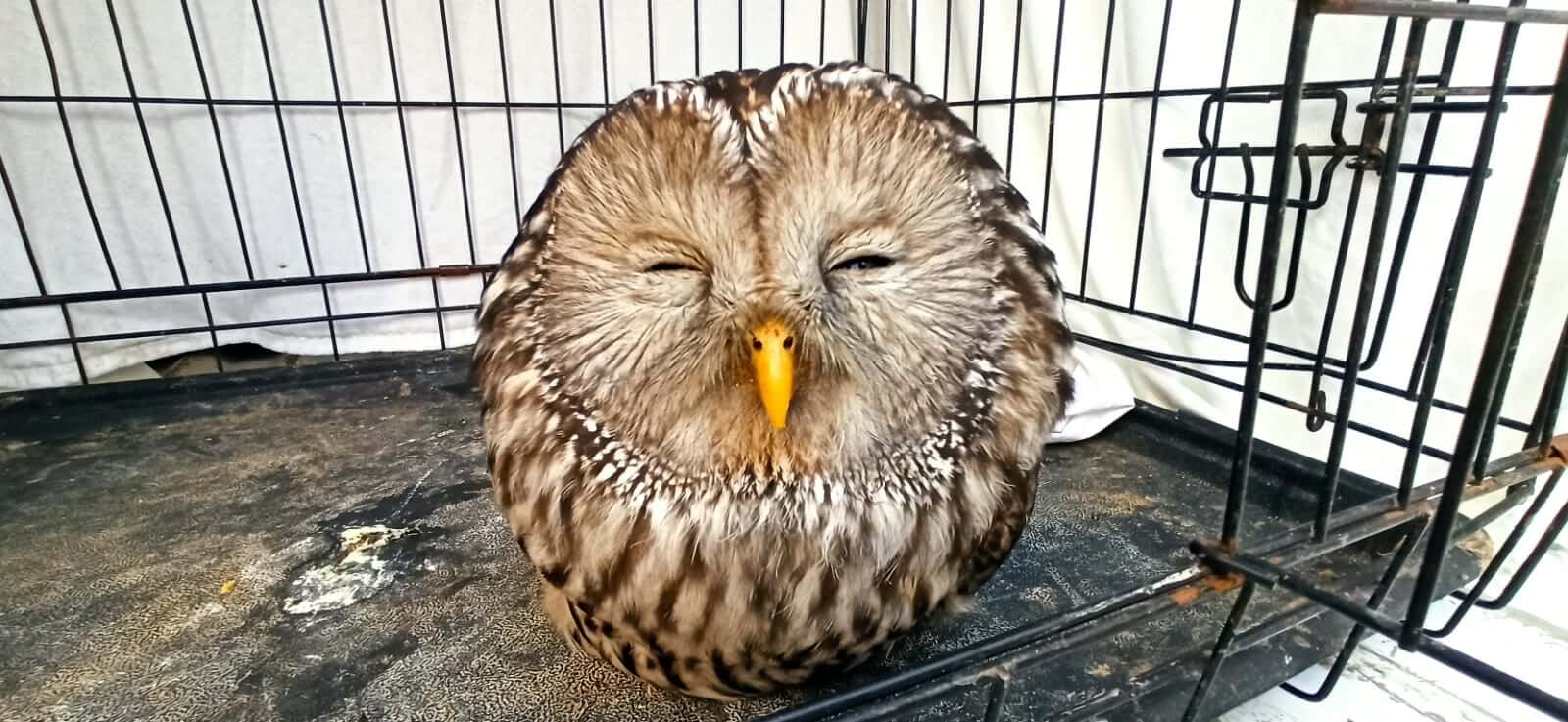 Another owl referral to Azil Dumovec. This one, collected on 3 December, was found near Koprivnica
Another owl referral to Azil Dumovec. This one, collected on 3 December, was found near Koprivnica
Tatjana herself has also seen her role change significantly during her time here. Originally, she graduated as a veterinary doctor. But, since joining Azil Dumovec, she's become shelter manager and helped them shape Croatian law and embrace the social media revolution.
“Actually, we took some inspiration from the UK,” she recalls. “After graduation, I contacted the RSPCA and the Dog's Trust to learn how they did things. Thereafter we became a 'no kill' shelter. Our next step was to lead the call for our Animal Welfare Law in Croatia to be changed. We succeeded and after that, all Croatia's shelters became 'no kill', like us.”
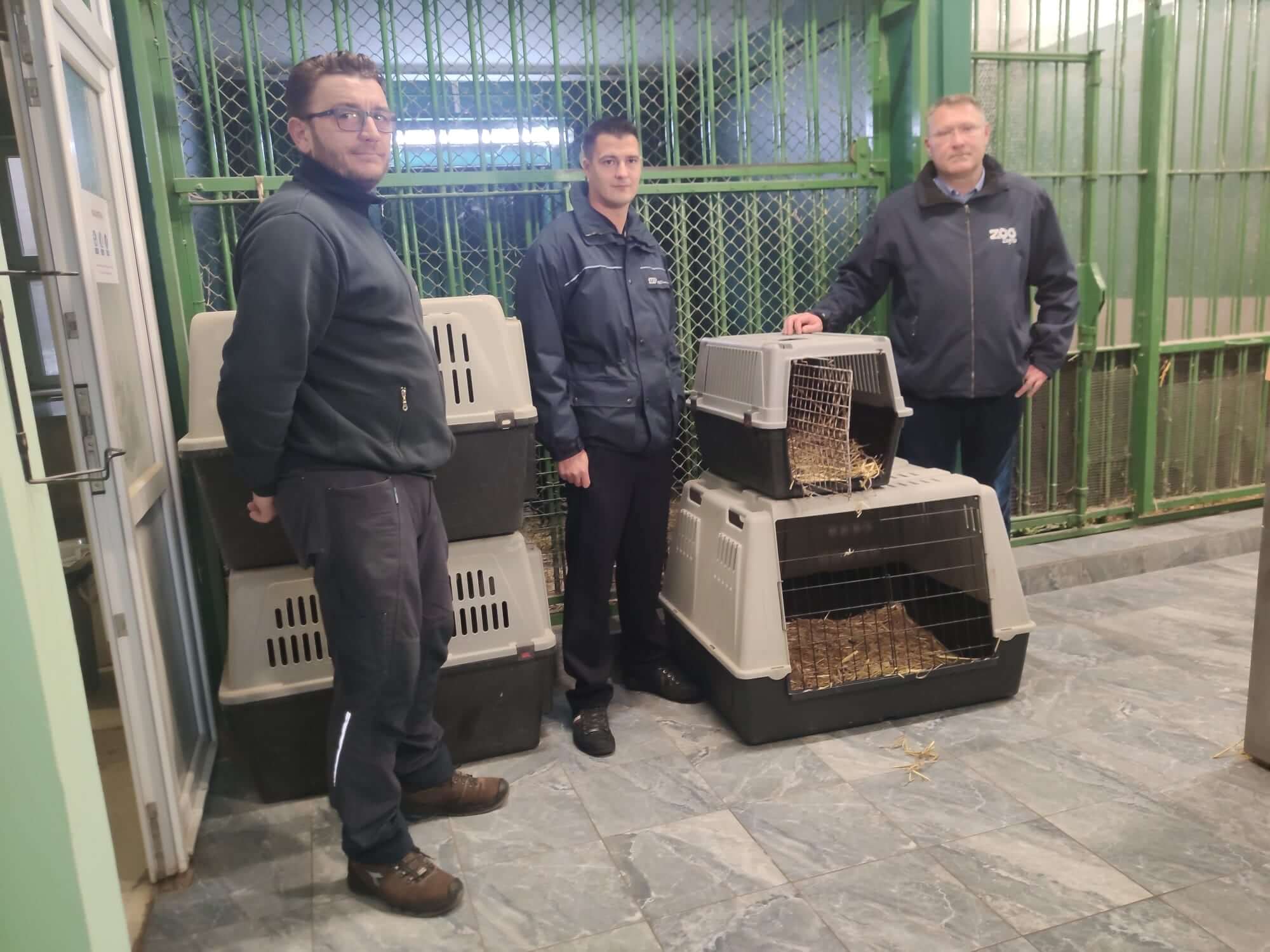 Dario Buzjak visits the owl he found at Zagreb Zoo
Dario Buzjak visits the owl he found at Zagreb Zoo
In the hours following Dario Buzjak's owl discovery, it seemed like half of Zagreb knew about his story. Photos of the owl taking a ride on Dario's Zagreb bus hit Facebook and Instagram first. The next day, TV and newspaper reporters were dispatched to Zagreb Zoo where they interviewed Dario visiting his new friend.
“Today, our social media accounts are a very important part of our communications,” says Tajana. “We dedicate quite a lot of time to them – posting photos, getting the stories and following up. But, in the end, it's totally worth it. These social media channels are the reason we have the highest rehoming rates in Croatia. We rehome over 1000 animals every year.”
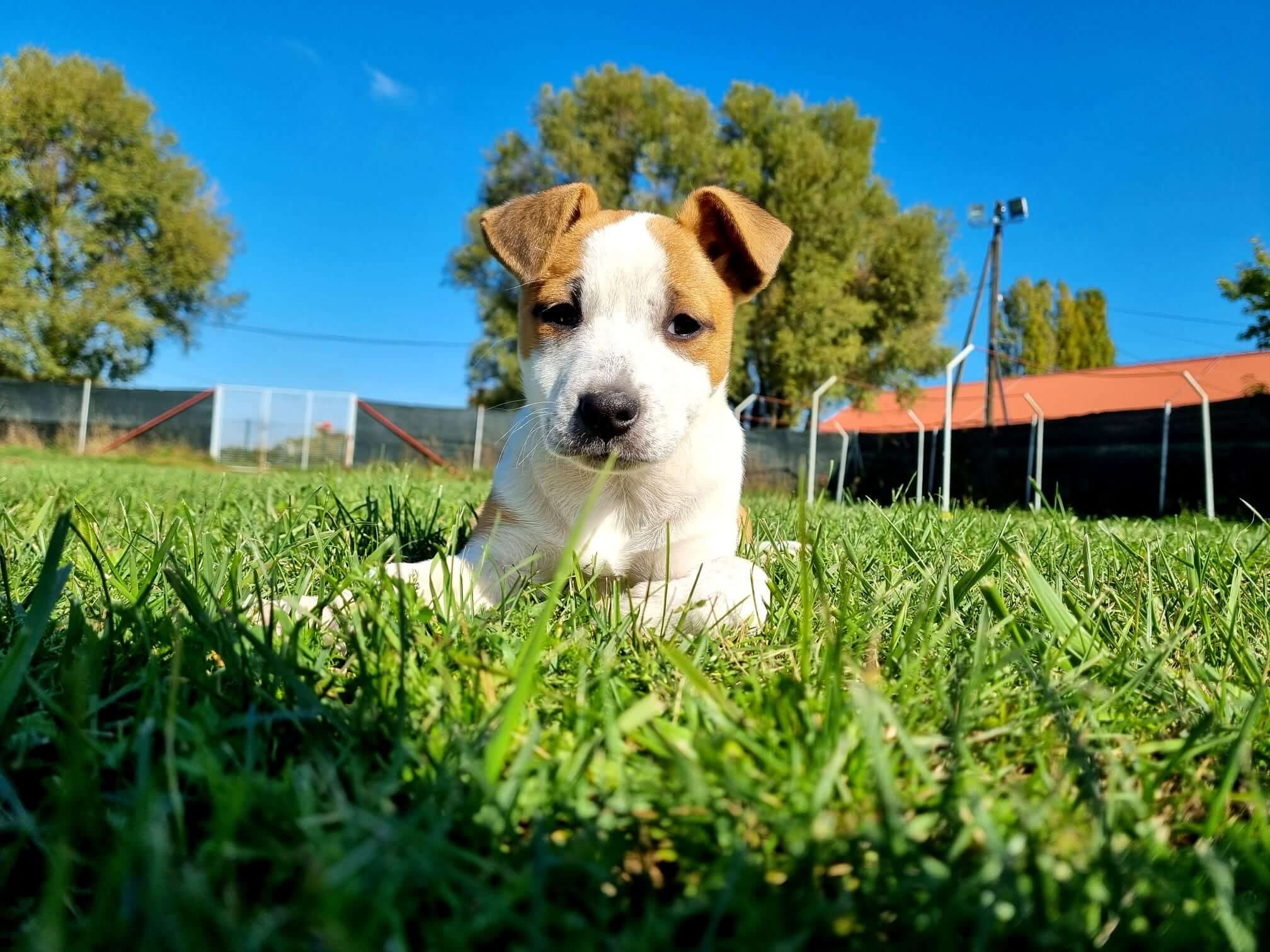 Cute photos on social media. Time-consuming but effective.
Cute photos on social media. Time-consuming but effective.
You can find out more about Azil Dumovec from their website here, their Facebook here or their Instagram here
All images courtesy Azil Dumovec
Animal Shelters and Associations in Croatia: Sibenske Sape (Sibenik Paws)
June 3, 2020 - What is the situation with animal shelters in Croatia in the corona era, and who is looking after the animals? A new TCN series meets the volunteers behind the animal shelters and associations around Croatia. Today, TCN meets Sibenske Sape from Sibenik.
There are hundreds of incredible shelters and associations in Croatia working tirelessly, with little to no support, to ensure no animal is left behind. In a new TCN series, we meet the people behind the animals.
Today, TCN meets Sibenske Sape from Sibenik.
First, tell us a bit about the history of your shelter/association.
The association Sibenske Sape (Šibenik Paws) was founded in 2018, although its members have been volunteering to help animals many years before that. We are devoted to helping lost and abandoned animals in Šibenik and the surrounding area. We don't have a shelter, so we function entirely by placing the animals in foster homes. We make sure the animals get proper veterinary care and we advertise them until they find a forever home.
What is the success rate of getting animals to their new owners?
For some, it takes a short time, for some much longer, but all our animals find a forever home in the end. Usually, it takes a month or so in a foster home where the animal can forget about all the stress and trauma the street life has caused it. There, it learns to socialize, so it will be more easily adopted. Of course, some rare cases end up tragically, but that usually happens when the animal is found already severely injured and the vets cannot help it.
Do you connect animals with owners only in Croatia or abroad, too?
We use our Facebook page to connect people who have found an abandoned animal with the people offering to foster it until it is adopted. The foster homes are usually in Croatia, but some of our animals find their forever homes abroad, mostly in Slovenia and Germany. All the new owners pass a home check and our foreign colleagues are helping us organize that.
Do you receive any support from the city, county, or state? If so, how much/in what way?
We are not funded by the city and we depend entirely on donations and the free time of our volunteers. We do, however, get help from some cities in other forms. For example, Vodice is a city that pays for 70 free castrations/sterilizations for our animals at the local vet. We are hoping to make a similar deal with Šibenik soon as well.
What is the process of bringing animals to your shelter/association? Are there any obstacles/red tape in place for you as a shelter/association?
We are not allowed to rescue animals by simply picking them up from the street and taking them home. Every found animal has to be registered in the local shelter in Šibenik (As Eko). So the procedure is as follows: a person calls us that they found an animal, we then instruct them to call the municipal services and inform them of the animal. The municipal services then call the shelter to pick up the animal and if we have a foster home, we will intervene and take the animal into our care as soon as it's checked for the microchip and vaccinated. We do this, especially, if the animal is very young or fragile, to avoid it coming into contact with the other animals in the shelter. The shelter life is tough and the more fragile animals can get pushed aside while feeding. The main obstacle we face is that the municipal services of some towns are refusing to cooperate, which is something they ought to do by law. Also, they cannot be reached during weekends.
Is the lack of sterilisations the biggest problem in Croatia? Is it really that difficult to get cats and dogs sterilised in Croatia?
It is not difficult at all to get them sterilized, however it seems to be difficult to get their owners to understand that they need to do it. The lack of sterilization is definitely a cause of the abandonment problem. Knowing how easily it could be solved makes it really painful for us to observe it. So we are trying hard to educate people to change their mentality slowly and to make them stop refusing to neuter/spay their animals.
How much does sterilisation usually cost? Do vets offer discounts for street cats or special circumstances?
We collaborate with a few vet stations and their prices differ, but let's say a male cat can get castrated starting from 280 kn, a female cat from 400 kn, a male dog starting from 600 kn and a female one starting from around 800 kn, but the price increases with the size of the dog. We do get a certain discount for the animals we bring through the association.
How do we make this process easier for locals to get more of them involved in sterilising street cats?
In some of the vet stations, we have a special price for the cats and dogs we bring in for sterilization, so if somebody has a lower income and they want to sterilize their pet, we can help them get this discount. Also, if we manage to get some financial help from the city of Šibenik, we would love to organize a free neutering project for everyone who wishes to participate with their pets.
How many cats/dogs would you say your shelter/association gets sterilised per year?
Last year we got around 1500 animals sterilized, out of which around 1000 we sterilized in collaboration with an NGO from abroad and around 500 ourselves.
Poisoning street cats is another issue in the area. Is this considered a crime in Croatia? Where should someone report this should they witness it? Are there fines/punishments in place?
It is definitely a crime. Unfortunately, it's a crime that seldom gets punished. It should be reported to the police. The one reporting the crime has to be persistent when calling because often the police itself doesn't take this very seriously. We have never heard of someone actually getting a fine or punishment for this crime.
What about the treatment of dogs?
Many dogs in Croatia are being used as hunting dogs. Some of them are treated very badly - they are locked in small boxes all day or chained up in the sun with water bowls already growing algae on the bottom. Keeping dogs chained up all day is also punishable by law, but the perpetrators often get away with it, saying to the veterinary inspection that they do, in fact, walk the dogs, just early in the morning when nobody can witness it. We urge everyone to report the owners who mistreat their dogs. It can be done anonymously - only the inspection and the police will know their personal information and they will not share it with the owner, or anyone else.
What are the best ways for the local community to get involved in helping your shelter/association?
We are in desperate need of foster homes, so anyone who can temporarily take care of an animal will be of great help to us. Also, any donation will be greatly appreciated.
Donations can be made via bank transfer or via Paypal.
Name: Šibenske šape
Bank name: Hrvatska poštanska banka (HPB)
iban: HR9323900011199011802
BIC (swift code): HPBZHR2X
Paypal: This email address is being protected from spambots. You need JavaScript enabled to view it.
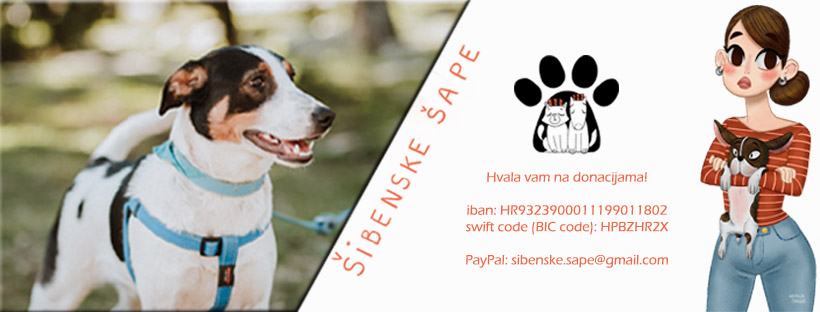
Can you explain the process of fostering animals with your shelter/association?
The ''foster parents'' can choose which cat or dog they want to foster and we will provide them with the food and everything else they need for taking care of the animal. We need to agree in advance how long the animal can stay in their foster home, ideally until adoption. A simple contract will be signed, explaining each side's obligations. Fostering is an ideal way of helping animals for people who love them but cannot make a long term commitment at the given moment.
How can the local community get involved in helping your shelter/association? What about people from abroad get involved, apart from sending donations?
There are many ways a local community can get involved. We need all kinds of help - photographers can get involved by taking professional photos of our protégés, we often need transport of our cats or dogs to their new homes or simply to the vet, and as previously said we need people who are willing to foster the animals.
People from abroad can, of course, donate, but also they can help us by sharing our posts online so we could reach a wider audience.
Is there a way for Croatia to utilise their place in tourism to help animals in Croatia? Whether it is connecting tourists with animals for adoption or organizing volunteer events at shelters?
We believe tourism can be of great help. Many people find out about us while travelling through Croatia and later they adopt an animal or find another way to help us. Tourists are often sensitive about seeing street animals, so they help us raise awareness with the local community.
You can learn more about Sibenske Sape HERE.
Do you have an animal shelter or association in Croatia and want to share your story? Get in touch at This email address is being protected from spambots. You need JavaScript enabled to view it..
To read more about lifestyle in Croatia, follow TCN's dedicated page.


